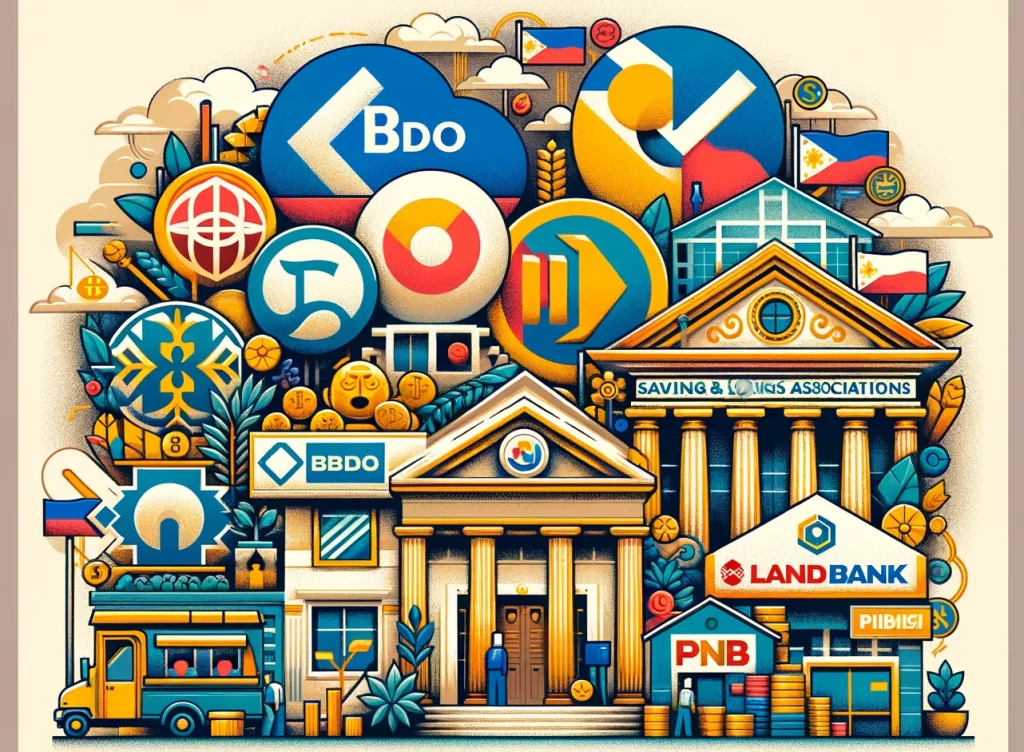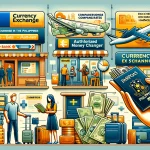The Philippines offers a dynamic and diverse banking sector, catering to both locals and visitors alike.
For tourists, understanding the banking environment is key to managing finances smoothly during their stay.
This article delves into what you can expect from the banking system in the Philippines, focusing on the major players and the broader network of retail banks and local savings and loan associations.
The Major Banks in the Philippines
1. BDO Unibank (Banco de Oro)
- Overview: BDO is the largest bank in the Philippines in terms of assets. It offers a wide range of services including personal, corporate banking, and investment banking.
- Website: BDO Unibank
2. Bank of the Philippine Islands (BPI)
- Overview: One of the oldest banks in the Philippines, BPI is known for its extensive services in retail banking, asset management, and corporate and investment banking.
- Website: Bank of the Philippine Islands
3. Metropolitan Bank & Trust Co. (Metrobank)
- Overview: Metrobank offers a comprehensive suite of financial services spanning from basic banking to insurance.
- Website: Metrobank
4. Land Bank of the Philippines
- Overview: While Land Bank caters primarily to the rural sector and agriculture, it also provides a full range of banking services to the general public.
- Website: Land Bank of the Philippines
5. Philippine National Bank (PNB)
- Overview: PNB provides a variety of services including retail banking, corporate banking, and wealth management.
- Website: Philippine National Bank
Retail Banks and Local Savings & Loan Associations
Beyond these major banks, the Philippines is home to dozens of retail banks and hundreds of local savings and loan associations, often referred to as “rural banks”.
These institutions operate on a more regional basis, offering services tailored to local communities.
They are an excellent option for more personalized banking services, although they might not always offer the same level of convenience or breadth of services as the bigger banks.
What Tourists Need to Know
- ATM Access: ATMs are widely available, especially in urban areas and tourist destinations. However, be mindful of withdrawal limits and fees.
- Currency Exchange: Most banks offer currency exchange services. For the best rates, larger banks and specialized foreign exchange bureaus are recommended.
- Opening Hours: Banks typically operate from 9 AM to 3 PM on weekdays, with some branches in malls offering extended hours and weekend services.
- Safety: Always exercise caution when using ATMs or carrying cash. Use ATMs in secure locations and be aware of your surroundings.
Tips for Banking in the Philippines
- Notify Your Home Bank: Before traveling, inform your bank to avoid any security holds on your cards.
- International Fees: Check with your bank regarding international transaction fees for ATM withdrawals and card payments.
- Emergency Contacts: Keep the contact information of your bank and credit card issuers handy in case you need to report a lost or stolen card.
FAQs on Banks and Accounts for Foreigners and Expatriates in the Philippines
Are There International Banks in the Philippines?
Yes, several international banks operate in the Philippines, including Citibank, HSBC, and Standard Chartered. These banks offer a range of services familiar to expatriates and may provide an easier transition for managing finances abroad.
Can I Use Foreign Currency in the Philippines?
While the Philippine Peso (PHP) is the primary currency used for transactions, foreign currencies, especially USD, can be easily exchanged at banks, authorized money changers, and some large hotels. However, it’s more practical to use PHP for everyday transactions.
Is It Difficult for a Foreigner to Open a Bank Account in the Philippines?
Opening a bank account in the Philippines as a foreigner is possible but requires documentation, such as a valid passport, Alien Certificate of Registration (ACR) I-Card, and proof of address (like a utility bill or lease agreement). Some banks may have additional requirements, so it’s advisable to check with the specific bank beforehand.
What Type of Bank Account Can Foreigners Open?
Foreigners can typically open both savings and current (checking) accounts, although savings accounts are more common due to simpler requirements. Some banks offer foreign currency accounts, which might be beneficial for those who receive income in currencies other than PHP.
Are There Any Fees Associated with Banking for Expatriates?
Banking fees can vary significantly between banks. Common charges include monthly maintenance fees, ATM withdrawal fees, and fees for international transfers. It’s essential to inquire about all possible fees when opening an account.
Can Expatriates Apply for Credit Cards in the Philippines?
Expatriates can apply for credit cards, but approval often depends on proof of income, employment status, and sometimes a local credit history. Secured credit cards, where a deposit acts as collateral, may be an easier option for newcomers without a local credit history.
How Safe Are Banks in the Philippines?
The banking system in the Philippines is robust and regulated by the Bangko Sentral ng Pilipinas (BSP). Deposits up to PHP 500,000 are insured by the Philippine Deposit Insurance Corporation (PDIC), providing an additional layer of security for bank account holders.
Tips for Expatriates Banking in the Philippines
- Research and Compare: Look into different banks and their services to find the best fit for your needs.
- Keep an Eye on Exchange Rates: If you’re transferring money from abroad, timing your transfers with favorable exchange rates can save you money.
- Consider Digital Banking: Many Philippine banks offer comprehensive online banking services, allowing for convenient account management.
Navigating the banking scene in the Philippines as a foreigner or expatriate involves understanding the available services, necessary documentation, and potential fees.
By gathering this information and preparing accordingly, expatriates can effectively manage their finances while living in the Philippines.
Understanding the banking sector in the Philippines can greatly enhance your travel experience, offering convenience and security for your financial needs.
Whether opting for the services of a major bank or exploring the offerings of local institutions, there’s a wealth of options to suit a variety of banking requirements.



